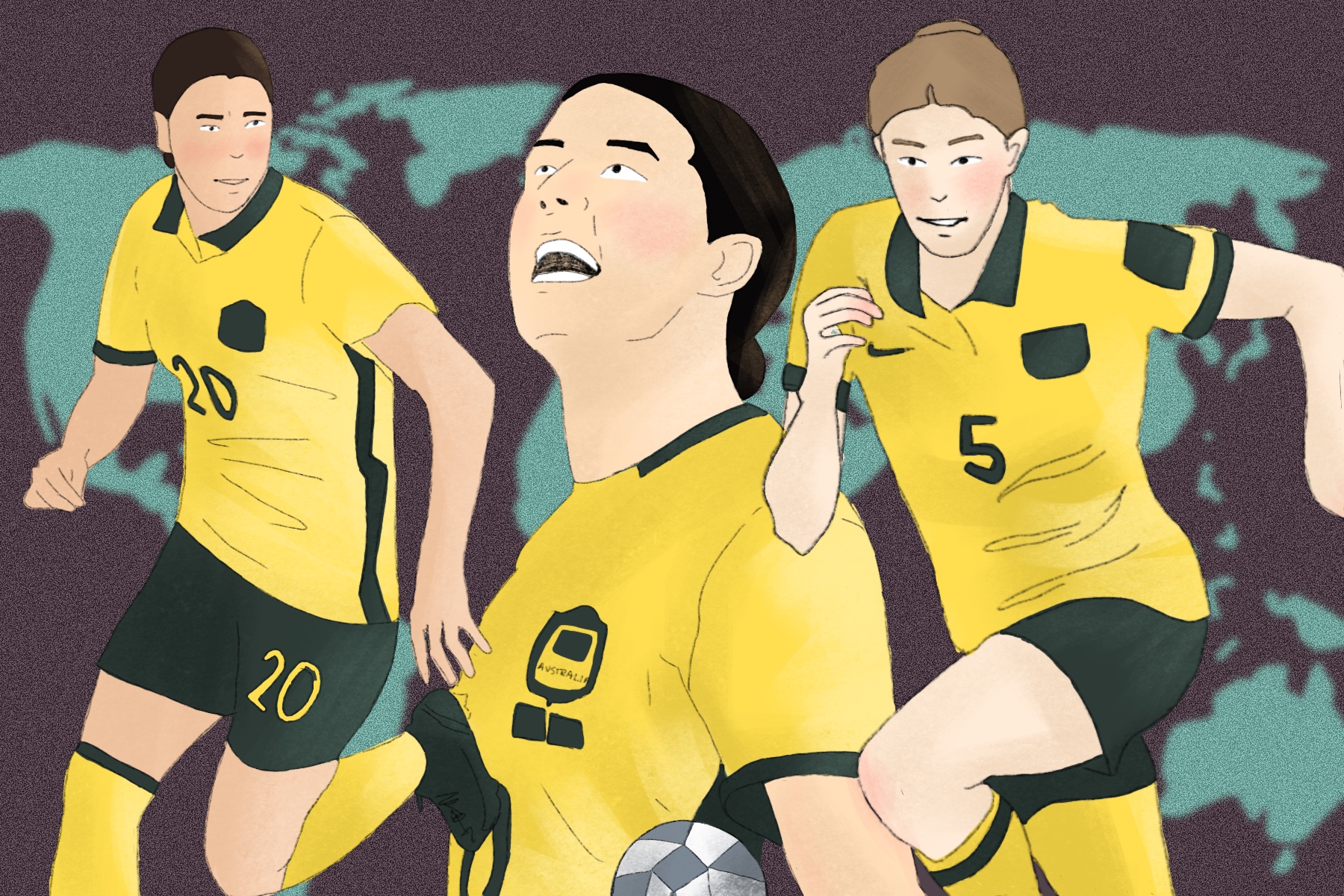Although women’s football has been making significant strides in the last few decades, the 2023 Women’s World Cup marks a significant turning point for women’s sports, especially within the host country: Australia.Lovingly known as ‘The Matildas,’ the Australian women’s football team placed 4th in the tournament, led by the star striker and captain, Sam Kerr.
The 2023 Women’s World Cup was co-hosted by Australia and New Zealand for the first time in Fifa history, spanning across ten stadiums in nine different cities— five in Australia and four in NZ. It was also the largest women’s tournament ever held, with eight new countries competing, to make a total of 32 nations present in the World Cup. Already being an event of many firsts, the women’s World Cup continued to surprise and inspire viewers throughout its span.
Being an Australian woman who has played football since she was 4 years old, I was overwhelmed with excitement for the World Cup alongside everyone else who played or was involved in the football world. But this was not the case for most Australians. Despite being a nation that prides itself on its sporting abilities and performance, there was a distinct lack of interest leading up to the event. The majority of the country claimed to have little to no interest in the World Cup and only around half of the population actually intended to tune in.
However, this attitude completely flipped once the games actually began. An astounding 78% of Australians followed the progress of the Matildas throughout the World Cup by reading about, watching or listening to the matches and almost 2 million fans attended matches live. This shattered the previous record of 1.2 million people who attended the 2019 World Cup in France and surpassed all expectations set by Fifa president, Gianni Infantino, who estimated around 1.5 million in ticket sales. Economically, the World Cup also excelled, with an estimated economic impact of AUS$1.32 billion (US$865,9 million) in Australia alone. The Matildas themselves are also said to have generated a media value of AUS$2.78billion (US$1.82 billion), making them one of the most influential sporting teams in Australia.
The semi-final match, Australia vs England, became the most watched sporting program in Australian television history and had the highest ratings since the system was established. An audience of 11.5million free-to-air viewers tuned in to watch the match, with another 957,000 viewers watching online. The World Cup even took precedence over men’s sporting events!
An Australian Rules Rugby (AFL) match was due to start while one of the Matildas games was still happening. Instead of going ahead with the AFL match as usual, the start time was delayed and the women’s game was streamed on the stadium’s big screens instead! There was little argument from fans in the crowd though, as shouts and cheers could be heard as everyone tuned in to support the Matildas.
Aside from the numbers, the atmosphere within Australia was like I had never witnessed before. Every week, the local women’s team I played for would meet up to watch the game together. And no matter what bar, pub or restaurant we were in, the TV would always be showing the women’s World Cup with a crowd of fans gathered round to support the team. Everyday, the front page of every newspaper would be plastered with images from the previous match and every conversation I had during that time seemed to begin with, “Did you see the Matildas game the other night?” It felt like the entire country was behind them. It felt like all those years of not having the ball passed to me, sitting on the bench, and being called a ‘little girl’ (despite being 17 years old at the time) were finally worth it. It felt like women’s sport was finally starting to be recognized and respected.
The change in attitude around women’s sport is amazing and shows real promise for future change. However, has there actually been any real, lasting impacts after the World Cup ended?
At the announcement of Australia and New Zealand’s historic co-hosting of the World Cup, a new program was established known as the Leverage and Legacy program. This was aimed at uplifting young girls and women in sport, by creating opportunities for them to play and learn through football. This program included initiatives such as the Kōtuitui School’s Programme which encouraged 30,000 students to learn about multiculturalism through the global lens of football.
The government also began upgrading sporting facilities around the country, with grants being given to over 30 local clubs to improve their lighting, pitches and, most importantly, to ensure gender-neutral changing rooms and bathrooms are available. Local councils have also taken on similar initiatives, with the Inner West Council (IWC) announcing its intention to set up a brand new field to encourage young people to become more involved in the sport and ensure they have places to play and train. A study has also shown that the tournament decreased healthcare costs by AUS$324 million (US$212.5 million) due to the increased rates of physical exercise, especially amongst young people, a number which is predicted to remain high even after the World Cup’s completion.
This also may not be the last the world sees of Australia and their Matildas, as Australia is currently bidding to host the 2026 Asian Women’s Cup after two of the main forerunners dropped out. The tournament host will be announced in April this year.However, regardless of the outcome, it will be a long while until Australia loses their love for women’s football.

















